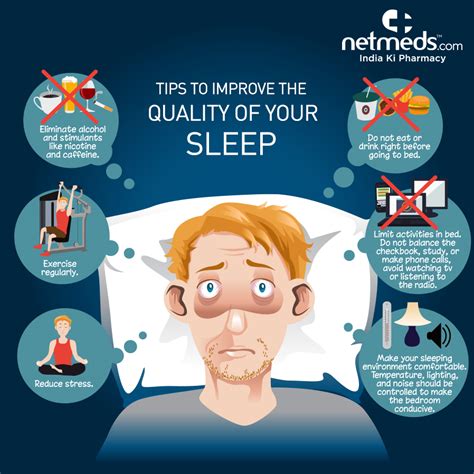Engaging in consistent physical activity can have an astounding effect on our mental and emotional health, profoundly shaping our overall sense of well-being and happiness. It goes beyond mere physical fitness - it is a powerful catalyst for personal transformation and inner growth. Regular participation in exercise not only enhances our physical capabilities, but also nurtures our minds, spirits, and emotions.
An active lifestyle can revolutionize our state of mind, providing us with a release from daily stressors, a sense of accomplishment, and a renewed zest for life. The positive impact of physical activity on mental health is multi-faceted, influencing various aspects of our emotional well-being. It ignites the release of endorphins, which are natural mood enhancers that elevate our spirits and promote a greater sense of happiness and contentment.
Moreover, exercise offers an opportunity for self-reflection and introspection, allowing us to detach from the chaos of our day-to-day lives and reconnect with ourselves on a deeper level. The journey of physical fitness unveils our inner strength, resilience, and determination, empowering us to overcome obstacles and build an unwavering sense of self-confidence.
In addition, engaging in regular physical activity can improve our cognitive function, sharpen our focus, and enhance our ability to cope with emotional challenges. Research has shown that exercise stimulates the growth of new neurons in the brain, enhancing memory, concentration, and overall cognitive performance. It also enhances our ability to regulate emotions, reduces symptoms of anxiety and depression, and improves our quality of sleep - all pivotal factors in achieving a balanced state of mental well-being.
Enhancing Mood and Alleviating Stress Levels through Physical Activity

Exercise can have a remarkable impact on our emotional well-being, providing a means to uplift and improve our mood while effectively reducing stress levels. Engaging in regular physical activity not only enhances our overall mental state but also serves as a powerful tool in managing and combating the daily stresses of life.
One of the significant benefits of incorporating exercise into our routine is its ability to boost mood. Physical activity releases endorphins, often referred to as "feel-good" hormones, which can evoke a sense of euphoria and happiness. By indulging in activities such as jogging, cycling, or dancing, individuals can experience an immediate uplift in their spirits, helping them stay positive and motivated throughout the day.
In addition to its mood-enhancing properties, exercise also plays a crucial role in reducing stress levels. Engaging in physical activity provides an outlet for pent-up emotions and helps to release tension accumulated throughout the day. Such release can result in a significant reduction in stress hormones like cortisol, effectively alleviating the psychological burden we carry.
Furthermore, engaging in regular exercise promotes better sleep patterns, which are essential for maintaining a balanced mental state. Quality sleep has a direct correlation with our mood and stress levels. By participating in physical activity, individuals are more likely to experience improved sleep quality, thus leading to a more rested mind and a reduction in overall stress levels.
- Participating in a variety of exercises, such as aerobic workouts, weightlifting, or yoga, can offer a diverse range of mental health benefits.
- Exercise also provides an opportunity for social interaction, fostering a sense of community and support in individuals, which further contributes to their overall well-being.
- It is important to note that even small bouts of physical activity, such as short walks or quick stretching exercises, can offer immediate mood-boosting effects.
In conclusion, engaging in regular physical exercise is an exceptional means of enhancing mood and reducing stress levels. By incorporating various forms of physical activity into our daily routines, we can experience an overall improvement in our emotional well-being, paving the way for a healthier and more fulfilling life.
Enhancing Cognitive Function and Mental Clarity
In this section, we explore the profound impact of consistent physical activity on cognitive function and the ability to maintain mental clarity. Through the utilization of regular exercise, individuals can experience significant enhancements in their cognitive abilities and overall mental acuity.
A key benefit of engaging in physical activity is the improvement it offers in terms of cognitive function. Regular exercise has been shown to boost various cognitive processes, including attention, memory, and information processing. By engaging in physical activity, individuals can enhance their ability to focus, retain information, and efficiently process complex tasks.
Furthermore, consistent exercise promotes mental clarity, allowing individuals to think more clearly, make decisions effectively, and maintain a heightened level of alertness. Exercise aids in reducing brain fog, enhancing mental stamina, and providing a sense of mental sharpness and clarity.
| Benefits of Exercise for Cognitive Function | Benefits of Exercise for Mental Clarity |
|---|---|
| Improved attention span and concentration | Enhanced ability to think clearly and make decisions |
| Enhanced memory retention and recall | Reduced brain fog and mental fatigue |
| Increased speed of information processing | Heightened mental stamina and alertness |
| Enhanced problem-solving skills | Improved mental sharpness and clarity |
To harness the benefits of exercise on cognitive function and mental clarity, it is recommended to engage in regular physical activity. Incorporating activities such as aerobic exercises, resistance training, and mind-body exercises into your routine can contribute to long-term improvements in cognitive abilities and mental acuity.
In conclusion, the impact of regular exercise on cognitive function and mental clarity cannot be understated. By embracing a consistent exercise regimen, individuals can experience significant enhancements in their ability to think, focus, and maintain mental sharpness in various aspects of life.
Improving Sleep Quality and Relieving Insomnia

Enhancing the quality of sleep and alleviating insomnia are essential aspects of promoting mental well-being and experiencing positive changes. The effective management of sleep patterns plays a crucial role in supporting overall health and psychological balance.
| Benefits of Improved Sleep Quality | Strategies to Relieve Insomnia |
|---|---|
|
|
By improving sleep quality, individuals can experience numerous benefits such as enhanced cognitive function, improved memory, and increased creativity. Adequate rest also contributes to a strengthened immune system and higher energy levels, which are vital for overall mental well-being.
To relieve insomnia effectively, several strategies can be adopted. Establishing a consistent sleep schedule and following a relaxing bedtime routine help signal the body when it is time to sleep. Incorporating stress-reducing techniques into daily life can reduce anxiety and promote better sleep. Avoiding stimulating substances, such as caffeine, alcohol, and electronic devices, before bed can also contribute to a more restful sleep. Additionally, creating a comfortable sleep environment by adjusting lighting, temperature, and noise levels enhances the likelihood of a peaceful night's rest.
In conclusion, improving sleep quality and finding relief from insomnia are invaluable for promoting mental well-being. By implementing strategies to enhance sleep patterns, individuals can reap the benefits of improved cognitive function, increased creativity, and a strengthened immune system.
Building Resilience and Fostering Emotional Wellness
In this section, we will explore the profound impact that a consistent exercise routine can have on strengthening resilience and nurturing emotional well-being. Emphasizing the significance of physical activity goes beyond its traditional association with physical health. Engaging in regular workouts can provide a range of benefits that extend to emotional strength and overall mental wellness, allowing individuals to better cope with life's challenges and cultivate a positive outlook.
Enhancing Resilience:
Physical exercise acts as a catalyst for building resilience, enabling individuals to bounce back from adversity with increased strength and vigor. Through a variety of mechanisms, such as the release of endorphins and stimulation of neuroplasticity, exercise empowers individuals to develop a more resilient mindset, enabling them to navigate through difficult circumstances more effectively.
Cultivating Emotional Well-being:
Regular exercise nurtures emotional well-being by promoting the release of mood-enhancing chemicals and reducing levels of stress hormones. This holistic approach to wellness helps individuals manage stress, anxiety, and depression, while simultaneously enhancing self-esteem and fostering a positive emotional state. Moreover, the social aspects of exercise, such as participating in group activities or joining fitness communities, contribute to a sense of belonging and social support, further nurturing emotional well-being.
An Empowering Journey:
Embarking on a journey of regular exercise and prioritizing emotional well-being transforms individuals' lives in profound ways. By establishing a consistent exercise routine, individuals take control of their physical and emotional health, capturing the power to build resilience, improve emotional well-being, and enhance overall quality of life.
FAQ
How does regular exercise affect mental well-being?
Regular exercise has a transformative influence on mental well-being in various ways. Firstly, exercise releases endorphins, which are known as the "feel-good" hormones, and can improve mood and reduce stress levels. Additionally, physical activity stimulates the production of neurotransmitters like serotonin and dopamine, which play a key role in regulating emotions and promoting feelings of happiness and relaxation. Moreover, exercise can enhance brain function and cognitive abilities, leading to improved focus, memory, and overall mental clarity. Lastly, regular exercise can also help alleviate symptoms of anxiety and depression by promoting a sense of accomplishment, building self-esteem, and providing a healthy coping mechanism.
How long does it take to see the mental benefits of regular exercise?
The time it takes to experience the mental benefits of regular exercise can vary from person to person. However, some studies suggest that individuals may start noticing improvements in their mood and overall mental well-being after just a few weeks of consistent physical activity. It is important to note that the frequency, intensity, and type of exercise can also influence how quickly these benefits are observed. While some individuals may start feeling better relatively quickly, it is recommended to maintain a consistent exercise routine for long-term mental health benefits.
What types of exercise are most effective for improving mental well-being?
Various types of exercise can have positive effects on mental well-being, so the choice ultimately depends on personal preferences and individual circumstances. Aerobic exercises like jogging, swimming, or cycling are often recommended as they increase heart rate and stimulate the release of endorphins. Yoga and Pilates are also known to improve mental well-being by combining physical movement with mindfulness and relaxation techniques. Additionally, any form of physical activity that one enjoys and can consistently engage in can be beneficial for mental health. It is important to find activities that provide enjoyment and fulfillment to sustain long-term adherence.
Can regular exercise help with managing stress?
Yes, regular exercise can be highly effective in managing and reducing stress levels. Physical activity helps to reduce the levels of stress hormones like cortisol and adrenaline in the body and stimulates the production of endorphins, which act as natural stress-relievers. Exercise also provides a distraction from daily stressors and can promote relaxation, improve sleep quality, and increase self-confidence. Moreover, engaging in regular exercise can help develop a healthy routine and provide a sense of control over one's physical and mental well-being, which is crucial for managing stress effectively.



